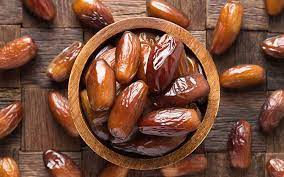Are these foods a part of your diet? Vitamin deficiencies might raise the risk of heart problems
We often overlook the significance of having a balanced diet in our hectic lifestyles. But did you know that a lack of several vitamins may greatly raise your chance of developing heart disease? This article will discuss the essential vitamins your body need to maintain heart health and how to make sure they are consumed on a regular basis.
The vitamin of sunshine, vitamin D
Describe vitamin D.
The “sunshine vitamin,” vitamin D, is essential for maintaining heart health. When exposed to sunlight, your skin produces it. You may also get it from food sources including fatty fish, fortified dairy products, and supplements.
How Your Heart Can Benefit from Vitamin D
A healthy heart depends on the regulation of blood pressure and the reduction of inflammation, both of which are facilitated by vitamin D. Hypertension and an elevated risk of heart disease may result from a vitamin D deficiency.
Dietary Vitamin D Inclusion
Spend some time in the sun and include foods like salmon, mackerel, and fortified cereals in your diet to make sure you’re receiving enough vitamin D.
The Immunity Booster: Vitamin C
Function of Vitamin C
Vitamin C, which is well-known for strengthening the immune system, is also important for heart health. Citrus fruits, strawberries, and vegetables like bell peppers all contain it.
Heart Health Benefits
By acting as an antioxidant, vitamin C protects your arteries from oxidative stress. Additionally, it aids in the production of collagen, which is necessary for keeping strong blood vessels.
Increasing your vitamin C intake
To achieve your Vitamin C requirements, be sure to incorporate citrus fruits, berries, and vibrant veggies in your meals.
The blood clot regulator is vitamin K.
Knowledge of Vitamin K
The health of your bones and blood clotting depend on vitamin K. K1, which may be found in leafy greens, and K2, which is produced by gut bacteria, are the two primary forms.
How It Affects Heart Health
Vitamin K lowers the risk of arterial stiffness and heart disease by preventing the accumulation of calcium in the arteries.
Vitamin K sources
Consume vegetables like broccoli, kale, spinach, and fermented foods like cheese to make sure you’re receiving enough vitamin K.
Vitamin B: A Friend of the Heart
B vitamins
Thiamine, B2, riboflavin, niacin, B3, pyridoxine, folate, and cobalamin are all members of the B vitamin family. They are essential for preserving heart health.
Heart-Health Benefits
By regulating blood homocysteine levels, these vitamins lower the risk of atherosclerosis and heart disease.
B vitamins should be a part of your diet.
To make sure you’re receiving enough B vitamins, include foods like whole grains, lean meats, poultry, and leafy greens in your diet. Not only should you avoid foods that are bad for your heart, but you should also make sure you obtain enough of these vital vitamins. Your heart is protected in different ways by vitamins D, C, K, and the B vitamins. Consider your food for a minute and see whether you are providing your heart with the nutrients it needs to be strong and healthy.







